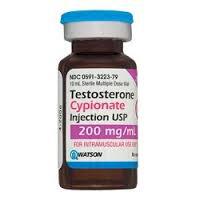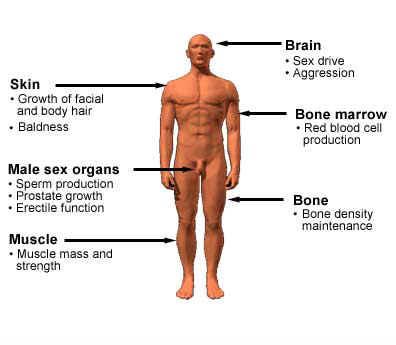Sex Hormones for Men
LOW T Meds Order Genuine Hormone Medications
WHEN YOUR TESTOSTERONE PRODUCT NEEDS TO BE REFILLED, CONTACT US FOR DISCOUNT PRICING ON SPECIAL TRT PROGRAMS, ED TREATMENT AND HGH THERAPY PROGRAMS.

It is Legal to buy testosterone online with a prescription.
Testosterone is the male sex hormone needed for optimal sexual performance, lean muscle, reduced body fat, energy, stamina and drive. Testosterone helps build muscle, boost sex drive, intimacy and men's health.
Products and Treatments for Male Hormone Restoration
Androgens
Sex Hormones: Testosterone, LH, FSH (Read more about the male sex hormone)
Testosterone Boosters
Amino Acids
Supplements
Precursers
HCG (Human Chorionic Gonaditropin - Read more about HCG Therapy)
Auxiliary Hormone Medications
Estrogen Inhibitors
Estrogen Blockers
Weight Hormones in Men
Weight hormones: Leptin, ghrelin, CCK, insulin
Men have an many hormones telling them when to eat and when to stop eating. The hormone ghrelin begins the cycle when your stomach is empty by prompting neurons in your hypothalamus to make you feel hungry. Then when you start eating, your stomach stretches and you secrete cholecystokinin (CCK), an appetite suppressant.
Stress Hormones in Men
Stress hormones: Cortisol and epinephrine
Whether you go into a "flight or fight response", confront an emergency, become angry or highly frustrated, your body's response to stress is the same: Your hypothalamus floods your blood with hormones to frighten you into action. "Cortisol and epinephrine are your body's alarm-system hormones," says Dr. Fonseca. They make your heart beat faster and dilate your bronchial tubes so they can feed oxygen to your brain and keep you alert. They also release fat and glucose into your bloodstream to provide emergency energy.
Sleep Hormone
Sleep hormone: Melatonin
When the sun goes down, your pineal gland switches on like clockwork to secrete melatonin, a hormone that helps you fall asleep and regulates your circadian rhythm. It lowers your core body temperature, which if too high promotes wakefulness. Production of melatonin peaks in the middle of the night, and the process can be disrupted by even very low levels of artificial light.
Testosterone and Sex
The significance of testosterone for male sexual function is apparent to most Age Management Physicians, Endocrinologists and Anti-Aging Medicine Doctors and their patients. Testosterone is needed to have and maintain firm erections. Together with HGH, the Human Growth Hormone, testosterone is responsible for sex drive and potency. Read more about HGH for Men.
New insights underscore the critical role testosterone plays in maintaining youthful neurological structure, alleviating depression, as well as properly distributing body fat and fat loss, especially in those men who are unable to reduce body weight regardless of diet and exercise.
Recent studies have demonstrated that low testosterone in men is strongly associated with metabolic syndrome, type 2 diabetes, cardiovascular disease (Miner and Seftel 2007), and an almost 50% increase in mortality over a seven year period (Malkin et al 2010).
Restoring testosterone
to youthful ranges in middle-aged, obese men resulted in an increase in insulin sensitivity as well as a reduction in total cholesterol, fat mass, waist circumference and pro-inflammatory cytokines associated with atherosclerosis, diabetes, and the metabolic syndrome (Kapoor et al 2006, Malkin et al 2004, Heufelder et al 2009). Testosterone therapy also significantly improved erectile function (Fukui 2007) and improved functional capacity, or the ability to perform physical activity without severe duress, in men with heart failure (Malkin et al 2007).
Factors That Affect Testosterone Levels in Men
DHEA: Dehydroepiandrosterone (DHEA) is a hormone produced from cholesterol that then follows one of two pathways, both involving two-step enzymatic conversions, to yield either estrogens or testosterone. Thus, levels of DHEA can have a role in determining levels of estrogen and testosterone, though DHEA alone is seldom enough to sufficiently restore testosterone levels in aging men.
Aromatase: One of the most important factors that affect testosterone levels and the ratio between testosterone and estrogen is the aromatase enzyme. Aromatase converts testosterone to estrogen, further depleting free testosterone levels and increasing estrogen levels. Men taking testosterone supplementation usually take AI's or Aromatase inhibitors
to avoid testosterone side effects.
Obesity: Obesity and associated hyperinsulinemia suppress the action of luteinizing hormone (LH) in the testis, which can significantly reduce circulating testosterone levels (Mah and Wittert 2010), even in men under the age of 40 (Goncharov et al 2009). In addition, increased belly fat mass has been correlated with increased aromatase levels (Kalyani and Dobs 2007).
The vicious circle of low testosterone and obesity has been described as the hypogonadal/obesity cycle. In this cycle a low testosterone level results in increased abdominal fat, which in turn leads to increased aromatase activity. This enhances the conversion of testosterone to estrogens, which further reduces testosterone and increases the tendency toward abdominal fat (Cohen 1999, Tishova and Kalinchenko 2009).
Sex hormone-binding globulin (SHBG): Most testosterone circulating in the bloodstream is bound to either sex hormone-binding globulin (SHBG) (60%) or albumin (38%). Only a small fraction (2%) is unbound, or “free”. (Morales et al 2010).
Testosterone binds more tightly to SHBG
than to albumin (Henry et al 2002). Consequently, only albumin-bound testosterone and free testosterone constitute the bioavailable forms of testosterone, which are accessible to target tissues and carry out the actions of the essential hormone (Morales et al 2010). Thus the bioavailability of testosterone is influenced by the level of SHBG.
Aging men
experience both an increase in aromatase activity and an elevation in SHBG production. The net result is an increase in the ratio of estrogen to testosterone and a decrease in total and free testosterone levels (Lapauw et al 2008). As will be discussed below, it is crucial that this skewed ratio be balanced.
Liver Function:
The liver is responsible for removing excess estrogen and SHBG, and any decrease in liver function could exacerbate hormonal imbalances and compromise healthy testosterone levels. Thus it is important that aging men also strive for optimal liver function.
Effects of Age-Related Decline in Testosterone Levels and Testosterone Therapy
The exact cause of the age-related reduction in testosterone levels is not known; it is probably the result of a combination of factors, including:
- Increasing body fat (especially belly fat, and therefore increasing aromatase activity)
- Oxidative damage to tissues responsible for the production of testosterone
- Reduction in testicular testosterone synthesis
- Declining levels of precursor molecules, such as DHEA
- Nutritional status and liver function
Body Composition and Inflammation: Testosterone affects fat cell metabolism and fat loss in several ways: inhibiting fat storage by blocking a key enzyme called lipoprotein lipase that is necessary for the uptake of fat into the body’s fat cells; stimulating fat burning by increasing the number of specific receptors on the fat-cell membrane that release stored fat; increasing insulin sensitivity; enhancing growth of muscle fibers; and decreasing fat deposits. All of these effects promote lean body mass and reduce fat mass (Naharci et al 2007, Saad et al 2007). Placebo-controlled trials have demonstrated both significant increases in lean body mass and decreases in fat mass after varying courses of testosterone treatment in older men. In these studies, the greatest favorable changes in body composition were seen in participants with low baseline testosterone levels who received testosterone therapy for 12 months or longer (Allen et al 2007).
Testosterone level peaks at about age 20 to 25, and then slowly declines about 1% per year thereafter affecting physical, mental and sexual health. Most 25 year olds have 800 ng/dL to 1,000 ng/dL at the peak of their testosterone production. Emergent evidence suggests that maintaining youthful testosterone levels may help aging men avert a variety of inflammation-mediated disease, such as atherosclerosis and arthritis.
By powerfully suppressing the activity an enzyme called 5-lipoxygenase, testosterone calms a fundamental pro-inflammatory pathway involved in the synthesis of signaling molecules known as leukotrienes (Pergola 2011). Leukotrienes are derivatives of the pro-inflammatory omega-6 fatty acid arachadonic acid; these molecules underlie much of the inflammatory development of asthma and bronchitis, and play a role in the pathology of cardiovascular disease and diabetes as well (Parlapiano 1999; Riccioni 2010).
Testosterone Health Benefits.
In a study involving 184 men with low testosterone levels, 18 weeks of testosterone replacement therapy suppressed markers of inflammation including IL-1β, TNF-α, and C-reactive protein. Moreover, when compared to men who received a placebo control, men receiving testosterone replacement exhibited significant decreases in body weight, and BMI, and waist circumference (Kalinchenko 2010). The reduction in waist circumference indicates that testosterone reduces fat accumulation around the trunk of the body; this is particularly important since central fat mass and is strongly associated with increased susceptibility to inflammatory diseases and mortality (Coutinho 2011).
Musculoskeletal system:
Bone integrity rests upon a balance between bone formation and bone resorption, which is controlled by multiple factors - including levels of estrogen and testosterone (Tok et al 2004, Valimaki et al 2004). In a clinical trial, testosterone increased bone mineral density in elderly men (Kenny et al 2010). Testosterone supplementation also has a positive effect on muscle metabolism and strength (Herbst 2004). This positive effect is undiminished with age. Some endocrine physicians may recommend testosterone supplementation to help combat Osteoporosis.
Central Nervous System (CNS):
Key to aging well is an optimistic outlook on life and the ability to engage in social and physical activity. However, low levels of testosterone have been associated with depression and other psychological disorders (Almeida et al 2008). To make matters worse for aging men, many conventional antidepressant medications suppress libido. Some experts suggest that testosterone therapy might reduce the need for the antidepressant medications entirely (Morley 2003, Carnhan and Perry 2004). Furthermore, testosterone treatment often increases feelings of well-being (Orengo et al 2004).
Testosterone and Mental Acuity: Cognition and alertness are also governed, in part, by testosterone’s effects on the CNS (Cherrier et al 2004). Low testosterone levels have been shown to correlate with lower scores on various psychometric tests (Moffat et al 2002), and similar effects have been reported in men undergoing androgen (male hormone) -deprivation therapy for prostate cancer (Salminen et al 2004).
Testosterone
also acts as an endogenous neuroprotective agent, able to support neuron integrity against a variety of toxic insults, including oxidative stress (Ahlbom et al 2001, Pike et al 2009). In addition, testosterone has been shown to reduce β-amyloid accumulation, an important pathophysiologic factor in Alzheimer’s disease (Zhang et al 2004, Rosario and Pike 2008).
Testosterone
improves neuron survival in brain regions vulnerable to neurodegenerative disease. This may explain the association of low testosterone levels in men with neurodegenerative diseases (Hogervorst et al 2004, Ready et al 2004). Studies demonstrate testosterone loss occurred 5 to 10 years prior to Alzheimer’s disease diagnosis. This suggests low testosterone is an important risk factor for Alzheimer’s disease (Moffat et al 2004; Rosario et al 2004). In a clinical study of 36 men recently diagnosed with Alzheimer’s disease, intramuscular testosterone treatment with 200mg every two weeks for up to one year was associated with improvement in both overall cognitive ability as well as critical visual-spatial function (Tan and Pu 2003).
Glucose and Lipid Metabolism: Testosterone also has been linked to metabolic function in the body. Specifically, studies have found inverse associations between the severity of metabolic syndrome, a condition characterized by excess abdominal fat, high cholesterol and high blood pressure that predisposes one for cardiovascular disease, and low plasma testosterone (Allan et al 2007, Saad et al 2008). A clinical study demonstrated that men with low testosterone levels are twice as insulin resistant as their counterparts with normal testosterone levels, and 90% met the criteria for the metabolic syndrome (Pitteloud et al 2005).
There also appears to be an inverse relationship between low testosterone levels and diabetes in men (Saad and Gooren 2009). Men with diabetes have lower testosterone levels compared to men without a history of diabetes (Stanworth and Jones 2009). The Third National Health and Nutrition survey of 1,413 men showed that men initially ranked in the lowest one-third with respect to either free or bioavailable testosterone were approximately four times more likely to have prevalent diabetes compared to those ranked in the top one-third, after researchers adjusted the results for age, race/ethnicity, and adiposity (Selvin et al 2007).
Cardiovascular Health: While conventional thought has been that because more men die from heart attacks than women, the disparity must have something to do with testosterone. However, research is pointing out that, in fact, the opposite may be true. Low levels of testosterone appear to be correlated with several cardiovascular risk factors, including atherogenic lipid profiles, insulin resistance, obesity, and a propensity to clot (Jones et al 2005). In addition, recent research is showing a clear relationship between low testosterone levels and increased incidence of cardiovascular disease and mortality in men (Malkin et al 2010).
Prostate health: Compared to younger men, older males have much more estradiol (a potent form of estrogen) than free testosterone circulating in the body. These rising estrogen and declining androgen levels are even more sharply defined in the prostate gland.
Estrogen levels increase significantly in the prostate with age, and estrogen levels in prostate gland tissues rise even higher in men who have BPH (Shibata Y et al 2000; Gann PH et al 1995; Krieg M et al 1993).
An important study indicates that testosterone is beneficial for the prostate gland in the vast majority of cases. In this study researchers looked at multiple parameters, including prostate volume, prostate-specific antigen (PSA) levels, and lower urinary tract symptoms in a group of men with low or low-normal testosterone levels (Pechersky et al 2002). Of the 207 men studied, 187 responded favorably to testosterone treatment.
The Importance of Hormone Testing
Millions of aging men
have the dual conditions of low testosterone and high cholesterol. Conventional physicians prescribe cholesterol-lowering drugs to reduce cholesterol, when, in fact, the age-related rise in cholesterol might simply be the body’s way of increasing hormone levels by supplying the raw materials necessary to make hormones. Age Management Physicians, Endocrinologists and Anti-Aging Medicine Doctors have successfully treated high cholesterol levels through a program of bioidentical hormone replacement therapy.
Age Management Physicians, Endocrinologists and Anti-Aging Medicine Doctors believe that comprehensive tests, along with a careful physical examination, are essential in detecting hormonal imbalances in aging men.
What are normal testosterone levels?
The so-called “normal” levels of testosterone in older men reflect population averages. Age Management Physicians, Endocrinologists and Anti-Aging Medicine Doctors agree that most aging men would prefer not to accept the loss of youthful vigor as normal. Instead, we suggest that a more valid optimal level for all men would be in the upper one-third of the reference range used for men aged 21 to 49 years, and that any supplementation should aim to restore hormone levels to that range. An optimal level of free testosterone
in men is 20-25pg/mL.
When measuring testosterone levels, it is critical to determine the levels of both free and total testosterone
to understand the cause of any observed symptoms of deficiency (Khosla et al 2008).
For most men, the normal testosterone range is about 300 ng/dl to 1200 ng/dL with an average androgen level of 679 ng/dL. Testosterone blood testing results can vary by lab. Some labs testosterone reference levels are 270 to 1070 ng/dL, while other androgen hormone testing labs use the 300 to 1200ng/dL as a normal range., Experienced hormone physicians are able to diagnose and formulate the best treatment plan for replenishing low testosterone levels.
Because of difficulties with equipment standardization and inter-laboratory variability, it is recommended that physicians consistently use the same hormone testing laboratories and gain familiarity with the accuracy, precision and definition of normal values for the assays offered.
It is also important to remember that blood levels of both free and total testosterone vary widely among individuals, making it difficult to establish a general baseline on which to prescribe a standardized treatment protocol. However, levels are quite consistent within individuals, and thus it is important that men have multiple tests over time to determine trends and individual thresholds for treatment.
Finally, during the initial testing, it is also imperative to test estrogen levels. Many of the unwanted effects of male hormone imbalance are actually caused by an elevated estrogen level relative to low testosterone levels (the estrogen/testosterone ratio). The optimal level of estrogen as measured by estradiol for aging men is 20-30pg/mL. The proper Estrogen Balance is critical to aging men's health.
A study published in the Journal of the American Medical Association (JAMA) measured blood estradiol in 501 men with chronic heart failure. Compared to men in the balanced estrogen quintile, men in the highest quintile (serum estradiol levels of 37.40 pg/mL or greater) were significantly (133%) more likely to die. Those in the lowest estradiol quintile (serum estradiol levels under 12.90 pg/mL) had a 317% increased death rate compared to the balanced group. The men in the balanced quintile—with the fewest deaths—had serum estradiol levels between 21.80 and 30.11 pg/mL (Ewa et al 2009). This is the ideal range that most hormone replacement specialists long recommended male HRT patients strive for.
A male health problem Age Management Physicians, Endocrinologists and Anti-Aging Medicine Doctors observe in aging male customers is insufficient free testosterone, i.e., less than 20 - 25 pg/mL of serum. When accompanied by excess estradiol (over 30 pg/mL of serum), this can signal excess aromatase enzyme activity which can cause estrogen dominance and estrogenic health problems in men.
Testosterone Replacement Therapies
Optimal testosterone treatment
usually requires a physician’s prescription. Integrative physicians typically prescribe bioidentical testosterone creams (available from compounding pharmacies). Conventional physicians are more likely to prescribe prepackaged, testosterone patches and/or gels from pharmaceutical companies that have sought FDA approval for the mass commercialization of their products.
All forms of bioidentical testosterone
have the same molecular structure and will increase free and total testosterone in the blood. The major difference is that prepackaged versions could cost up to 10 times more per dose than compounded versions. Furthermore, prepackaged testosterone gels are sold only in a limited number of doses, whereas compounded testosterone can be formulated at virtually any dose the physician feels is clinically necessary and useful.
Using Hormone Replacement Wisely
If a man opts for testosterone therapy (available orally or as an injection, subcutaneous implant, topical cream, gel, or skin patch), he should keep several facts and precautions in mind (Schaeffer et al 2004, Cunningham and Toma 2010):
FDA WARNING FOR ANDROGEN USE
Testosterone Therapy is not for every man. Men with a history of heart disease, prostate problems or cancer may not qualify for androgen treatments. A warning has been issued by the FDA regarding androgen product use in men with these types of health problems or history.
Hormone replacement should not be initiated without comprehensive testing. The patterns and trends over time of multiple hormone levels, (for instance free testosterone, total testosterone, and estrogen), determine the specific hormone replacements required.
It may not be safe to use large amounts of testosterone in any form without also using aromatase-inhibiting supplements or medications.
Because of the risk of worsening prostate cancer, careful screening, including a digital rectal examination and prostate specific antigen (PSA) screening, must be done before starting any hormone replacement program. However, recent research indicates that low endogenous testosterone levels may present a greater risk for prostate cancer than higher levels (Morgantaler 2006, Rodman et al 2008).
If a man already has prostate cancer, however, testosterone replacement should be delayed until the underlying cancer is eradicated.
A man contemplating hormone replacement, whether through a prescription or supplements, should work closely with a qualified physician to plan a rational treatment approach that includes continued monitoring and screening.
There is no “one size fits all” testosterone treatment. Individuals vary, and hormone replacement can be a simple or complex process and often requires careful attention to signs and symptoms, as well as laboratory testing.
WHEN YOUR CURRENT TESTOSTERONE, HGH, HCG, TRIMIX OR HRT PRODUCTS RUN OUT, GET REFILLS AT A DISCOUNT PRICE .
Effects of Low Testosterone on Men's Sexual Health
Medical data
demonstrates that testosterone therapy can lead to increases in muscle mass and strength. Additionally studies have shown that men with low testosterone can become weak, frail, lose muscle mass and bone due to osteoporosis. Researchers also have shown that men who are testosterone-deficient may be more likely to experience, erectile dysfunction, lost libido depression and a reduced quality of life. Some men are prescribed testosterone therapy because their testosterone levels are lower than normal, a condition known as Andropause (Low T) or Hypogonadism. Legal or real prescription testosterone is not the same as taking anabolic steroids. A valid doctor's prescription is required to buy testosterone legally.
Real Testosterone
Injections, Creams, Gels, Patches and Pills prescribed by your doctor utilize actual hormones found to be most effective for an increase in male endocrinologic function. A testosterone hormone blood test, physical examination, complete medical history and evaluation are required before a man can enroll in a TRT Testosterone Replacement Therapy Program
or an HGH Treatment Program using genuine Human Growth Hormone.

Sexual Health Benefits
It is important to understand how to keep testosterone levels as healthy as possible because testosterone levels are so important to so many aspects of life, including physical activity, sexual desire, muscle growth, mood and well-being.
Testosterone Programs for Hormone Replacement offer guaranteed products that provide a safe way to boost these important testosterone levels. Increasing real testosterone levels can help increase lean muscle growth, burn fat, increase sexual desire, libido and physical activity, as well as enhance your mood!
Low testosterone levels can affect mood, sexual desire, and physical and sexual performance. Read more in depth about Low Testosterone Symptoms in Men.
Increased testosterone levels will benefit your physical activity, muscle tone, energy level, as well as sex drive, sexual performance, libido and fertility in men.


